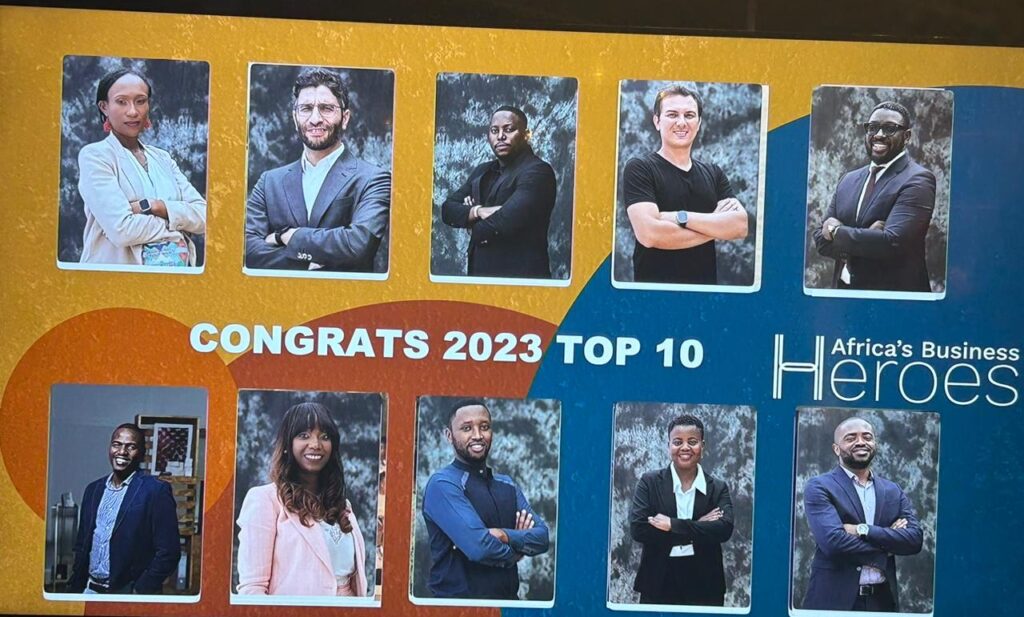The entrepreneurship landscape in Egypt has been significantly impacted by ongoing economic challenges, exacerbated by European geopolitical tensions, which have adversely affected the country’s economy for over a year and a half. Entrepreneurs in Egypt have been facing numerous challenges, including high-interest rates and the devaluation of the Egyptian pound, which has lost over 75% of its value against the US dollar since the war in Ukraine began in March 2022.
Business Monthly met with a group of Egyptian entrepreneurs who were competing in Africa’s Business Heroes (ABH) Prize Competition, which was held over two days in the Rwandan capital Kigali in September to address current challenges faced by entrepreneurs and how it impacts their business operations.
Pulse check on startups
“Ongoing economic challenges in Egypt placed significant pressures on entrepreneurs and startups,” Omar Hagrass, CEO and co-founder of Trella explained to Business Monthly.
Trella, a platform connecting shippers to carriers, coped with challenges like high interest rates and local currency depreciation, by expanding their operations in other markets like the UAE and Saudi Arabia to compensate for losses. However, Hagrass noted they still face pressure from the high rates, as the startup needs loans from local banks to cover the gap between collecting payments and paying drivers.
Business Monthly also met with Ayman Bazaraa, CEO and co-founder of Sprints, who has been selected among the ABH’s top 10 to compete in the grand finale scheduled in November.
Sprints is an end-to-end solution to bridge the tech talent gap, starting from assessing talent, delivering a customized learning journey, pairing talent with a top-paying job, to supporting its alumni’s career growth. Bazaraa noted that the devaluation of the Egyptian pound has severely affected the firm’s revenues. To mitigate this, they diversified their revenues by collecting over 50% of their income in multiple hard currencies and raised their service rates by 20%-30%.
Sprints claims to be the sole social enterprise in the Middle East and Africa offering guaranteed hiring programs. Graduates are only required to make 0% interest payments over three years once they secure a job. The company’s pricing structure varies based on the learning program’s objectives and duration, ranging from $50 to $400.
Blessing in disguise
In the same vein, Mohamed Ali, CEO and founder of iLock highlighted the key challenges his business is facing at the time being. iLock focuses on achieving electrical safety by producing electrical accessories, multi sockets, and cables. It offers 50 different products and has established a strong distribution network, covering 50% of the Egyptian market.
“The key challenge we have been suffering is importing the raw materials and production supplies as a result of the US dollar liquidity shortage. But surprisingly, it was a blessing in disguise, as we realized that the small components we imported from the external market could be produced locally,” Ali said.
In this regard, Ali emphasized that the US dollar shortage currently affecting the Egyptian market is poised to have a positive impact in the future. He believes that the market will respond by developing solutions to produce necessary components and replacements locally instead of relying on imports.
He added, “This, in turn, will help reduce the demand for the US dollar in the struggling Egyptian market, potentially leading to a recovery in US dollar liquidity,” according to Ali’s perspective.

About ABH
ABH is a philanthropic initiative sponsored by the Jack Ma Foundation and Alibaba Philanthropy that aims to support and inspire the next generation of African entrepreneurs across all sectors
Over a 10-year period, ABH will recognize 100 African entrepreneurs and commit to allocating grant funding, training programs, and support for the development of an entrepreneurial ecosystem.
Five Egyptian entrepreneurs have managed to make it to the top 20 list in the ABH Prize competition, with only Sprints selected among the top 10 who will compete for a share of $1.5 million in grant money. The winner receives $300,000, the first runner-up $250,000 and the second runner-up $150,000. The other seven of the top 10 finalists each receive $100,000, and the remaining $100,000 is split among all finalists for additional training programs after the competition.






